1890
Idaho was admitted as the 43rd state in the Union.
1890

George Laird Shoup, born in Kittanning, Pennsylvania, but later of Salmon City and Boise, and William John McConnell of Moscow, Idaho, were elected as Idaho's first United States senators. Shoup was elected while serving as the state's first governor and signed the credentials certifying his own election as senator.
1890
George L. Shoup presented his election credentials, took the oath of office administered to him by the vice president, and was seated.
1891

William J. McConnell presented his election credentials, took the oath of office administered to him by the vice president, and was seated.
1891
Idaho’s new senators drew lots to determine their Senate class assignments. William McConnell drew Class 3, with a term due to expire in just two months, on March 3, 1891, and George Shoup drew Class 2, with a term to expire on March 3, 1895.
1891

Born in Palestine, Illinois, but later of Blackfoot, Idaho, Fred Thomas Dubois began his service as the state’s Class 3 senator. His election was challenged by William H. Clagett, who was elected in February 1891 by a second vote of the legislature. On March 3, 1892, the Senate voted that Dubois should retain his seat.
1895
George L. Shoup became chairman of the Senate Committee on Education and Labor (today's Committee on Health, Education, Labor, and Pensions), serving until 1897.
1901
Former senator Fred T. Dubois took his oath as a Class 2 senator. After one Senate term as a Republican (1891–1897), Dubois led Idaho's Silver Republicans into an alliance with the Democrats and soon became a rising figure in the Democratic Party. Dubois won election to the Senate in 1900 as a Silver Republican, but officially changed to a Democrat before taking his seat.
1903
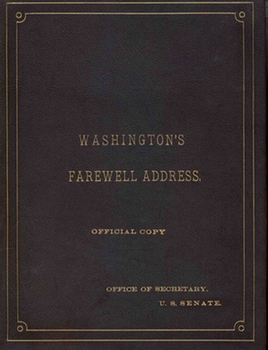
Fred Dubois delivered George Washington's Farewell Address on the floor of the Senate, a tradition dating to 1862.
1904

Born in Chadds Ford, Pennsylvania, Weldon B. Heyburn of Wallace, Idaho, delivered George Washington's Farewell Address on the floor of the Senate, a tradition dating to 1862.
1907

Originally of Fairfield, Illinois, William Edgar Borah of Boise, Idaho, began the first of six Senate terms. During his 32 years and 10 months in the Senate, a record for Idaho's senators, Borah played a leading role in the passage of constitutional amendments for a graduated income tax and the direct election of senators and in the Senate's rejection of the Treaty of Versailles.
1909
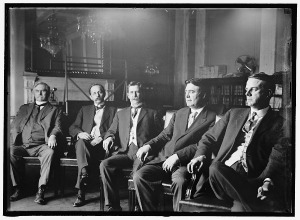
William E. Borah became chairman of the Senate Committee on Education and Labor (today's Committee on Health, Education, Labor, and Pensions), serving until 1913. Borah headed the committee again from 1922 to 1924.
1910
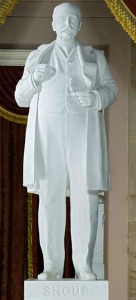
The Senate moved to accept a marble statue of George Laird Shoup, by Frederick E. Triebel, as Idaho's first contribution to the Capitol's National Statuary Hall Collection.
1914

Incumbent senator James Henry Brady of Pocatello became Idaho's first directly elected senator under the terms of the Seventeenth Amendment, passed in 1913. Brady was first elected to the Senate in 1912 to fill the vacancy caused by the death of Weldon B. Heyburn, whose term ended March 3, 1915.
1924
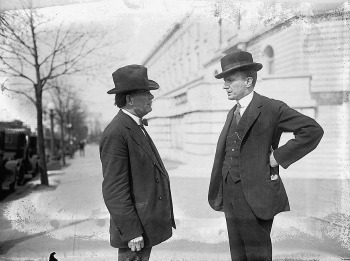
William E. Borah became chairman of a select committee that investigated and exonerated Montana senator Burton K. Wheeler from charges that he illegally acted as an attorney in cases in which the United States was a party.
1924
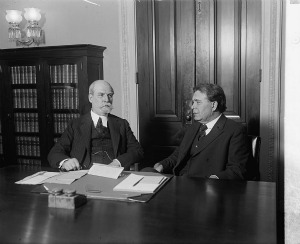
William E. Borah became chairman of the Senate Committee on Foreign Relations, serving until 1933.
1936
William E. Borah ran unsuccessfully as candidate for the Republican presidential nomination in 1936, but in November he was elected to his sixth term in the Senate.
1940
A funeral service for William E. Borah was held in the Senate Chamber. Among those in attendance were senators, several hundred House members, the Supreme Court, the cabinet, diplomats, and President Franklin Roosevelt. A congressional delegation that included ten senators also traveled to Idaho for Borah's burial service.
1947
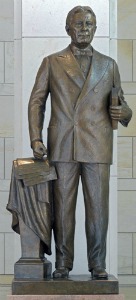
The Senate moved to accept a bronze statue of William Edgar Borah, by Bryant Baker, as Idaho's second contribution to the Capitol's National Statuary Hall Collection.
1948

Born in Portland, Oregon, but later of Pocatello, Idaho, Glen Hearst Taylor was nominated for vice president of the United States on the Progressive Party ticket, headed by former vice president Henry A. Wallace of Iowa. The ticket was defeated in November's general election and Taylor's single term in the Senate ended January 3, 1951.
1958

Frank Forrester Church of Boise read George Washington's Farewell Address on the floor of the Senate, a tradition dating to 1862.
1975

Frank F. Church became chairman of the Select Committee to Study Governmental Operations With Respect to Intelligence Activities, serving until 1976. The "Church Committee," which investigated CIA and FBI operations, was terminated on May 19, 1976, when it was replaced by the Senate Select Committee on Intelligence.
1979
Frank F. Church became chairman of the Senate Committee on Foreign Relations, serving until 1981.
1980

James Albertus McClure of Payette and McCall, a senator since 1973, was elected chairman of the Republican Conference beginning with the 97th Congress in 1981 and served until 1984.
1981
James A. McClure became chairman of the Senate Committee on Energy and Natural Resources, serving until 1987.
1993

Dirk Kempthorne, born in San Diego but later of Boise, read George Washington's Farewell Address on the floor of the Senate, a tradition dating to 1862.
1996

Larry Edwin Craig of Payette was elected chairman of the Republican Policy Committee, a position he held until November 2002.
1996
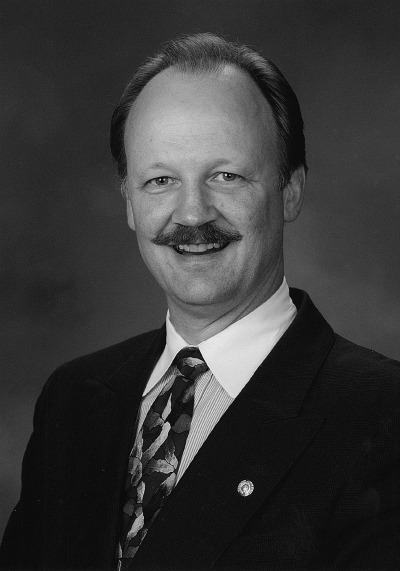
Idaho-born Gregory S. Casey of Boise was elected Senate sergeant at arms and served until his resignation on November 9, 1998.
1996
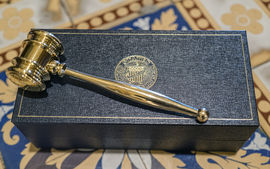
Dirk Kempthorne received a Golden Gavel Award for presiding over the Senate for at least 100 hours in a single session.
2000

Michael Dean Crapo of Idaho Falls received a Golden Gavel Award for presiding over the Senate for at least 100 hours in a single session.
2005
Larry E. Craig became chairman of the Senate Committee on Veterans' Affairs, serving until 2007.
2008
The Senate Select Committee on Ethics issued a public letter of admonition to Larry Craig for his "conduct in connection with [his] June 11, 2007, arrest at the Minneapolis‑St. Paul International Airport and [his] August 2007 guilty plea in the State of Minnesota, County of Hennepin, Fourth Judicial District, and [his] conduct related and subsequent thereto." The committee said that the "conduct to which [he] pled guilty, together with [his] related and subsequent conduct . . . constitutes improper conduct reflecting discreditably on the Senate."
2017

Mike Crapo became chairman of the Senate Committee on Banking, Housing, and Urban Affairs, a position he held until 2021.
2019

James Risch of Boise became chairman of the Senate Committee on Foreign Relations, a position he held until 2021.
2025
James Risch again became chairman of the Senate Committee on Foreign Relations. Mike Crapo became chairman of the Senate Committee on Finance.